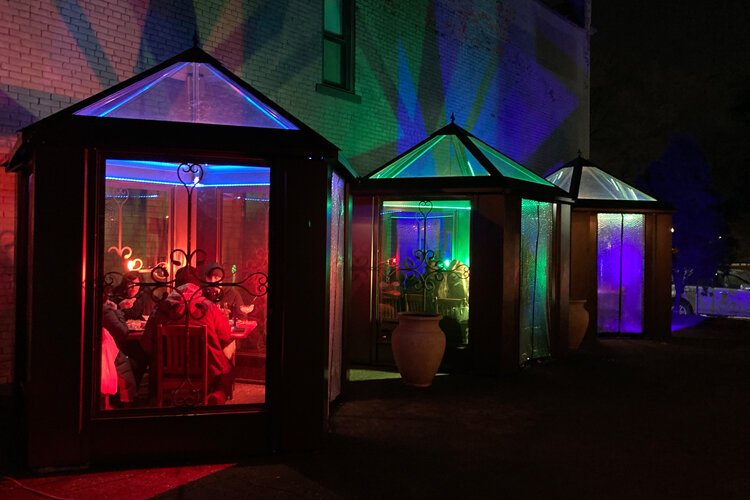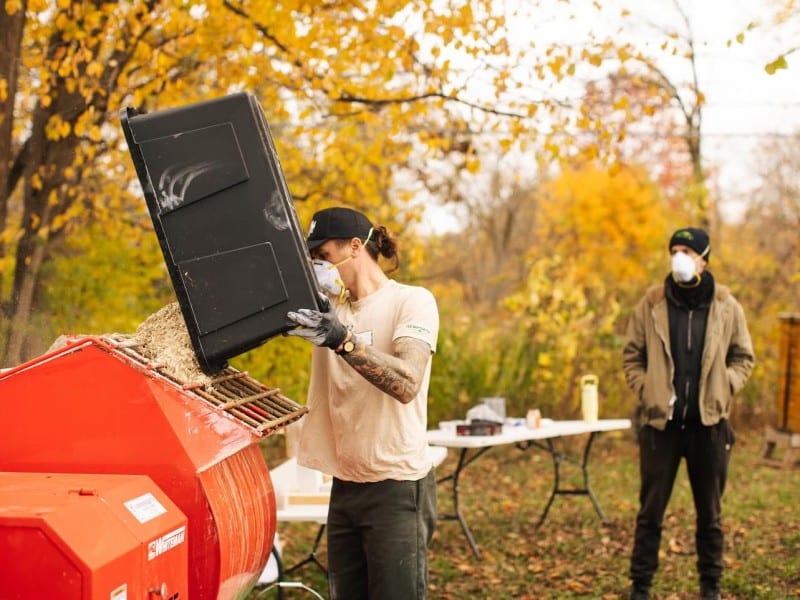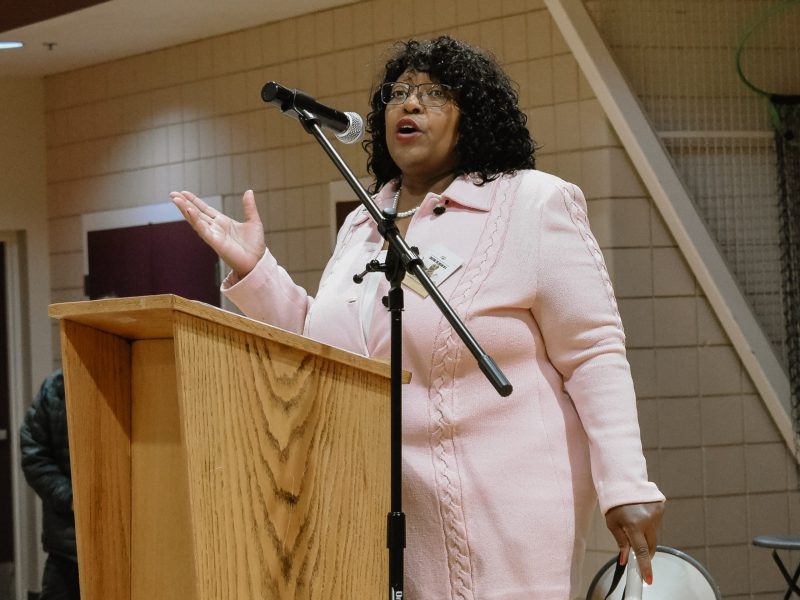Eat-in luminarias debut at Southwest Detroit restaurants
As part of the Southwest Detroit Business Association’s Phase 1 rollout of the luminarias, local restaurants Armando’s and El Asador Steakhouse recently opened their luminarias to customers, with a total of 15 luminarias planned to debut in the coming weeks and an average of three luminarias at each restaurant.

As the pandemic forced restaurants to close, owners and chefs have gotten creative with how to continue serving customers while ensuring a safe experience. Igloos have been especially popular, while some have fashioned patios with heaters while others have even built fancy yurts.
Southwest Detroit restaurants now have their version of outdoor dining innovations: luminarias. As part of the Southwest Detroit Business Association’s Phase 1 rollout of the luminarias, local restaurants Armando’s and El Asador Steakhouse recently opened their luminarias to customers, with a total of 15 luminarias planned to debut in the coming weeks and an average of three luminarias at each restaurant. The 11-foot-tall metal and plexiglass luminarias can seat six diners comfortably and are private dining spaces complete with heaters and ventilation systems to ensure there is no residual air left between parties. In warmer months, the windows can be removed, making the luminarias a year-round feature and built to last.
Eventually there will be a Phase 2 and 3, with the vision to place as many luminarias at Southwest Detroit restaurants as possible, says Jennifer Gomez, vice president of programs and compliance at the SBDA.
The conversation started in September when the SBDA, which also launched an e-commerce store to support businesses during the pandemic, began exploring ways to support the restaurant community during the winter months, Gomez says.
“This concept that was rooted in functionality, but we anticipated it would become a very compelling attraction and signature branding opportunity for Southwest Detroit,” Gomez says.
Traditionally handmade small lanterns fashioned out of paper bags and seen during the holidays, luminarias date back more than 300 years in Mexican culture, making these “familiar icons” a natural fit for the project because it pays homage to the neighborhood’s Hispanic culture. In addition to its cultural significance, the ability for it to light up is a big selling point, Gomez says. “What I’m most excited about is the feature that really makes it pop … [and] it becomes this attraction.”
The project was made possible through a $50,000 grant from The Hudson Webber Foundation, and Aptum Build Solutions donated design, engineering, and architectural services valued at $15,000. Diseños Ornamental Iron worked on an expedited timeline for manufacturing and reduced its fees to help the SDBA meet budget goals for the program. Each luminaria is valued at $6,000.
“Our roots run deep in Southwest Detroit,” Diseños Ornamental Iron President Nieves Longordo said in a release. “In times of great difficulty and daunting uncertainty, we must extend a helping hand to our neighbors. Tumultuous and trying times demand generosity, and Diseños intends to deliver. We will not only be showcasing our rich history and culture through our work but demonstrating that Detroiters stand together. Simply put: we got us!”
To participate, restaurants had to commit $1,000 for each luminaria. Luis Garza, chef and owner of El Asador, says it’s worth the investment even during the pandemic that has devastated small businesses like his with sales down about 80% doing only carryout. On Friday, the first day the luminarias at El Asador were available, all of the reservations were spoken for, he says. For a small restaurant like his, being able to accommodate up to 16 more patrons when capacity can only be at 25% starting Feb. 1 for indoor dining is a huge help. It’s been a struggle to operate a restaurant at this time because restaurants have had to stay closed longer than most businesses, he says, and at the moment he’s putting in long hours because he couldn’t afford to have staff. His family is helping him at El Asador.
“My restaurant is a small restaurant, and at 25% capacity it’s not going to be enough volume or money coming in to keep on going,” he says.
And he’s already thinking of more positive times, such as summer.
“My goal for summertime is to cooking a different menu outside,” he says. “We’re going to be cooking outside the luminarias, steak meat seafood. It’s going to be a totally different menu outside than inside.”
Gomez says initial response to the luminarias have exceeded SDBA’s expectations.
“We’re so thrilled, because not only is it a great representation for our restaurants … but it’s impacting Southwest Detroit in a way that it’s getting a different type of attention, a really positive type of attention. And that in turn is going to impact our entire business and residential community in such a positive way,” she says.
Like many small businesses, Southwest Detroit entrepreneurs were also hit hard by the pandemic, “but the fortunate thing that I’ve seen with our businesses in Southwest Detroit is that they’re very resilient,” Gomez says. “They had to be creative. So they’re still doing business, they’re just doing it differently.”
Garza says the past year has been extremely challenging for him. Despite only doing takeout with sales down about 80%, he has not only found a way to keep the business going by thinking of new ways to serve customers such as through family dinner trays and curbside carryout but even give a portion of sales to support employees.
“[The coronavirus] is not going to go away right away … we have to think about how to do things for [the future], how can we survive, what we can do. Can I invest, can I do this? You have to think hard [about solutions].”




